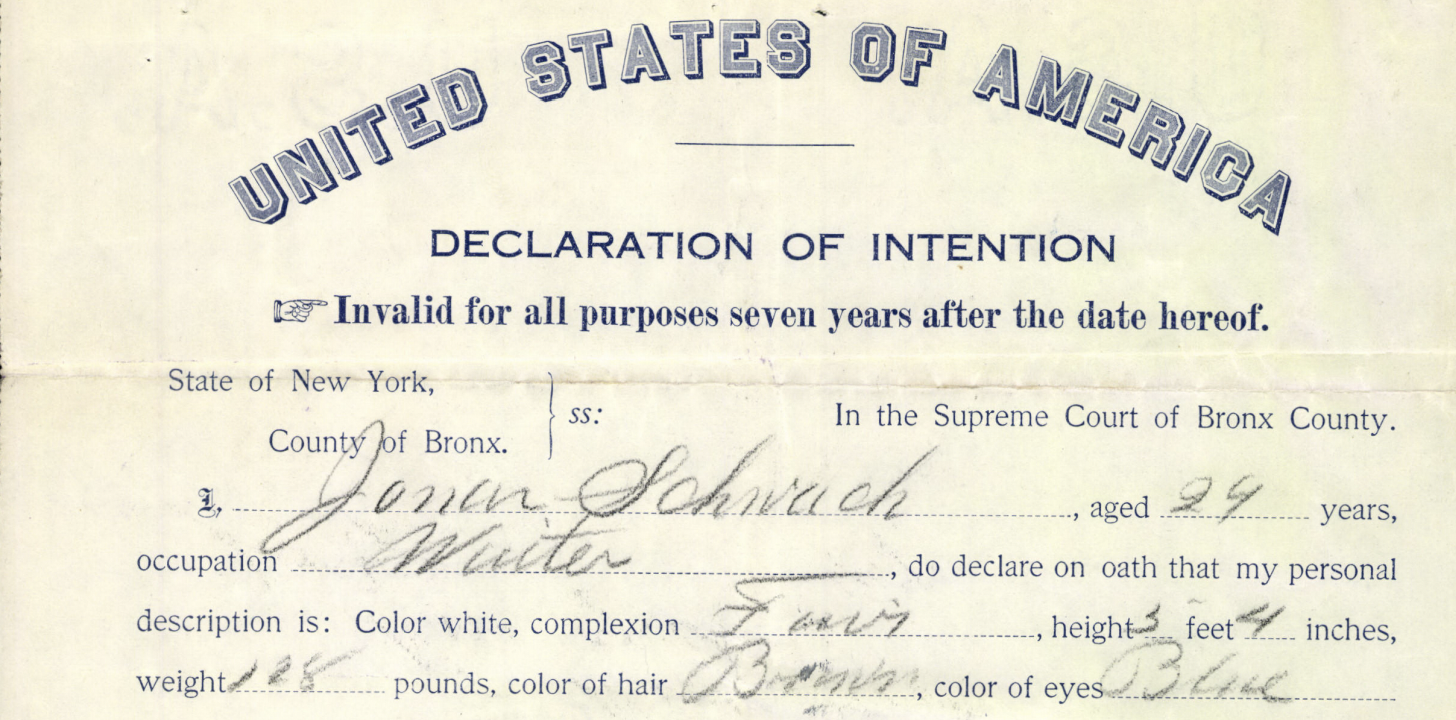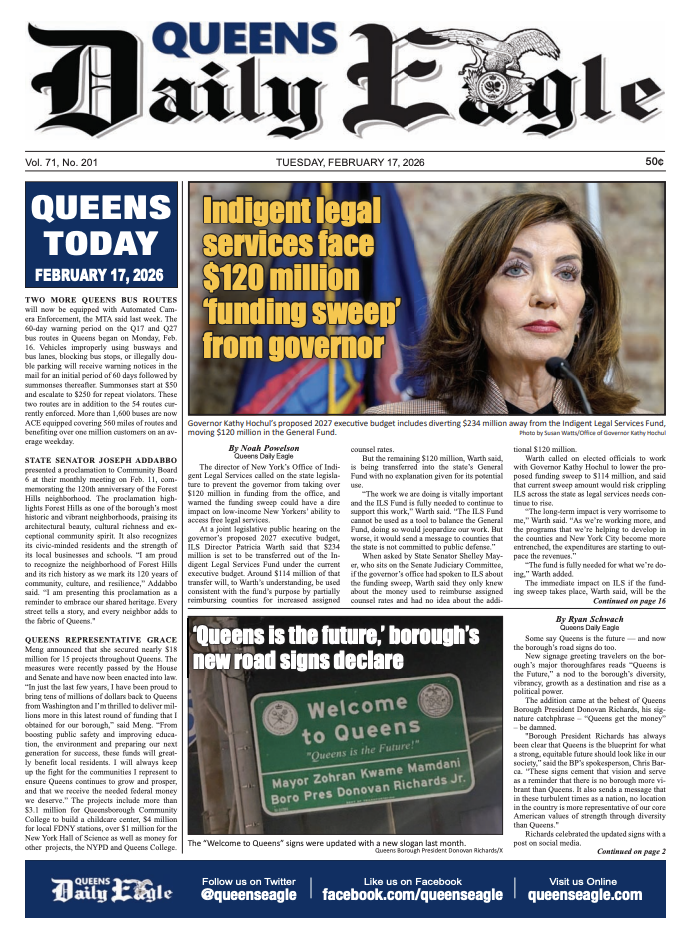Go back in time with the court’s new naturalization database
/By Ryan Schwach
A piece of Abraham Kaplan’s naturalization documents, which are now accessible alongside 400,000 documents via a new database from the Queens courts. NYnaturalizations.com
A little more than 93 years ago, Abraham Kaplan became naturalized as an American citizen at Queens Supreme Court in Jamaica, officially swearing allegiance to the county he had arrived to 17-years earlier.
Kaplan, at that point a 35-year-old Jewish man in the laundry business, had come to the United States as Ahram Kapelowitz from Poland on the vessel Ultonia. He stepped into the country on Christmas Eve of 1913. On the day that he renounced the State of Russia and the Republic of Poland, he was living with his wife, Eva, and their three children on 106th Street in Ozone Park.
Kaplan’s naturalization record, along with thousands of others, can now be found through the new free online naturalization documents database, a joint project from the Queens Public Library and the Office of Court Administration.
The new program, which can be seen at NYnaturalizations.com, gives public access to around 400,000 naturalization records signed in the courts of Queens and the Bronx between 1794 and 1952.
The database is the culmination of a plan that was hatched four and a half years ago and unveiled Thursday at the Queens Public Library on Merrick Boulevard.
“People are so involved in their past, and where they come from,” said Queens County Court Clerk Audrey Pheffer.
Pheffer said the goal of the project, which was chiefly spearheaded by Deputy Clerk Ray Weaver, was to provide public access to the documents, but also to preserve them and highlight the importance of learning about our collective history, particularly here in the nation’s most diverse county.
Officials on Thursday said that the collaboration between the courts and the library, which already has a robust online database of historical collections, made sense.
“It was a no brainer,” said Pauline Toole, a commissioner at The New York City Department of Records and Information Services. “This endeavor…is just so important, because people will come and find their family history, people will come and learn more about the communities, about the immigrants who came before, because we are, of course, a city of immigrants.”
The project was spurred on by a grant given to the courts by the National Archives Administration Commission.
“We succeeded in our goals of having free accessible information online for the public,” said Weaver, who wrote the grant. “This is a huge opportunity not only for Queens and the Bronx, but really for anyone that's interested in ancestry and genealogy.”
Weaver said that over the last few years, the Office of Court Administration, with the help of library science masters students at St. John’s University, combed through and organized the court’s trove of naturalization records, digitized them, and with the help of OCA’s IT Department, created the site which gives anyone free, instant access to the records.
The records are not only sentimental to families or interesting to history buffs, but important in legal contexts, particularly for people looking to obtain dual citizenship who want to prove their lineage.
“These records, believe it or not, even though they're over 225-years-old, are accessed weekly, if not daily, sometimes,” Weaver said. “They have not only a sentimental value to people, but they have an official purpose as well. We're constantly getting requests from the public for these records.”
Chief Clerk Audrey Pheffer discusses the database at Queens Public Library on Thursday along with Deputy Clerk Ray Weaver. Photo by David Handschuh
Though demand for the records didn’t stop during the pandemic, access to them did. The pause made it clear to court leaders that their digitization was all the more necessary.
“It became even more important over COVID,” said Pheffer, who was joined by her daughter, Assemblywoman Stacey Pheffer-Amato.
“I’m very proud to be here as a family member, but I brought my team with me also because it is about collaboration and copying really great ideas, and seeing how things work,” the lawmaker said.
On the site, which is currently live, researchers can query a record by year of arrival, the country of origin or by the name of the New Yorker.
The site also includes the ability to search “alternate spellings”, since record keeping in the days when some of the documents were signed are not always clear.
“When you see naturalization records that you want to learn more about, and you go to Ancestry.com or Familytree.com, the next thing you see is you'd have to pay a subscription or a monthly or annual fee to be able to access these records,” said Weaver. “That should not be the case, because these are public records, someone could come into our office and ask to see these records, and we would gladly show them to them. So there's no reason that these shouldn't be can't be shared freely online.”
In addition to the creation of this online database, there is a computer at the County Clerk’s office which allows visitors to use the database directly.
The naturalization documents of Jonas Schwach, an Austrian waiter who was naturalized in the Bronx in 1924, and who potentially is related to the author of this article. NYnaturalizations.com
There is hope that the project can grow and include other boroughs, with Staten Island, seemingly on the horizon.
“I think once it gets out there, there really is no stopping, and we're looking forward to adding more counties beginning in Richmond and then hopefully having all five boroughs,” said Weaver.
“We are ready to take it on the road,” added Pheffer. “Isn’t it exciting?”






